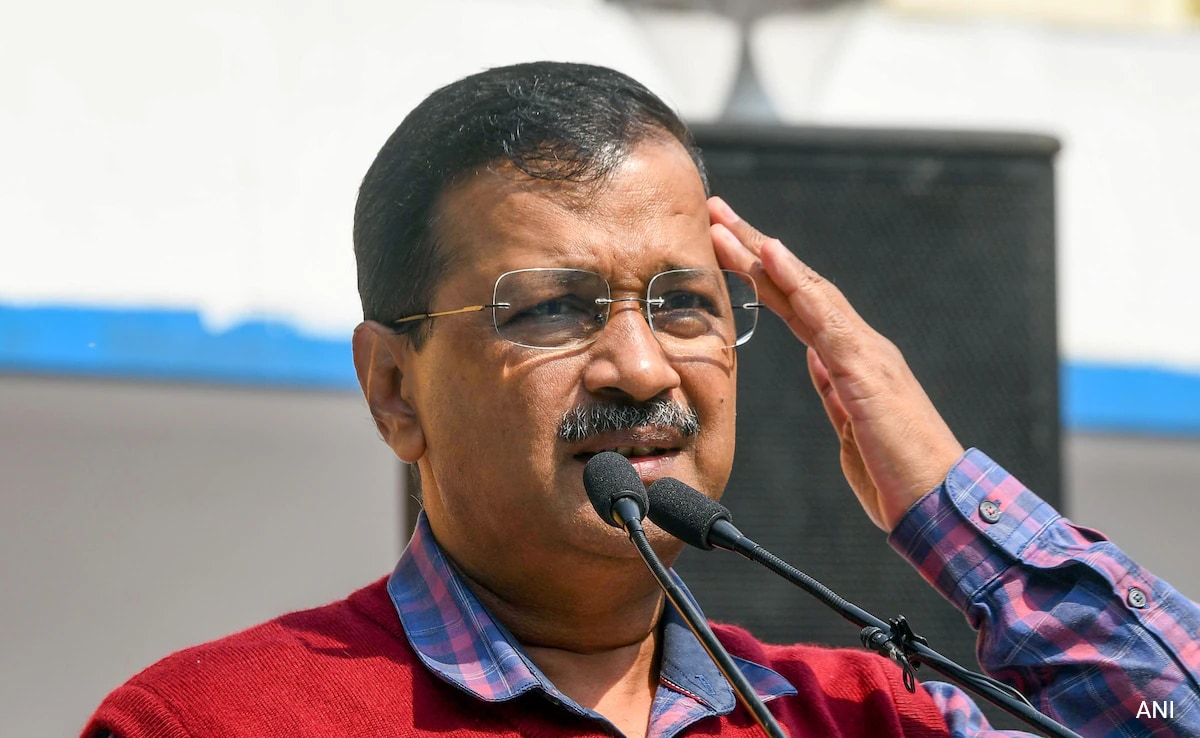
The Houthis said their actions were in solidarity with the Palestinians in Gaza (file photo)
Dubai, United Arab Emirates:
Efforts to end Yemen’s long war have stalled as Western countries launch airstrikes against the rebels as Houthi attacks roil the Red Sea and threaten to spell further disaster for the capitulated country.
As recently as December, arduous negotiations were making progress, with the United Nations saying the warring parties had agreed to work to “restore an inclusive political process.”
The Iran-backed Houthis have been fighting the Saudi-led coalition since March 2015, months after they seized Yemen’s capital Sanaa and most of its population centers, forcing the internationally recognized government south to Aden.
Hundreds of thousands died in combat and from indirect causes such as disease and malnutrition. According to the United Nations humanitarian agency OCHA, more than 18 million Yemenis need “urgent support.”
Hostilities slowed significantly in April 2022 when a six-month UN-brokered ceasefire came into effect, and have remained at low levels since then.
But Farea Al-Moslimi, a fellow in Chatham House’s Middle East and North Africa program, said Houthi attacks on Red Sea shipping and retaliatory actions by the United States and Britain left the peace process “hanging in the balance”.
The Houthis, who claim their actions are in solidarity with Palestinians in Gaza, have launched dozens of attacks on ships on the vital sea route since November.
According to the rebels, 17 of their fighters were killed in the latest reprisal attack.
“Peace in Yemen requires a departure from existing international and regional commitments,” Al-Moslimi said. “The road to war was closed, but now the gates of hell have reopened.”
Peace plan “no longer on the table”
Hussein Ezzi, a senior Houthi official, acknowledged this month that there were “obstacles” on the road to peace, which he blamed on the United States, Britain and the Yemeni government.
But he told a news conference that “Riyadh and Sanaa have the courage to overcome these difficulties,” without elaborating.
However, Majid Madhaj of the Center for Strategic Studies think tank in Sana’a said that with the situation in the Red Sea erupting, “peace plans no longer have a place at the table”.
In December, UN special envoy for Yemen Hans Grundberg said progress had been made on a roadmap to resolve key issues, such as agreeing to pay salaries to civil servants working for the Houthis and resuming oil exports.
However, Madhaj said the Saudi-backed Yemeni government was now seeking “opportunities to tip the balance of power” in its favour.
Last month, the deputy leader of the government’s presidential council even called for foreign support for a ground offensive in support of U.S. and British air strikes against the Houthis.
In mid-January, Washington reclassified the Houthis as a terrorist organization and lifted that designation in 2021 to aid humanitarian efforts and facilitate diplomatic efforts.
But Gerald Fierstein, the former U.S. ambassador to Yemen, said, “I think the idea that we (the U.S.) will now build up anti-Houthi forces so that they can start fighting again is simply not possible.”
“We will not go down that road,” he told AFP.
Fierstein added that the United States was “under intense pressure not to do anything to undermine the (peace) negotiations.”
‘Looking from afar’
Gen. Joseph Votel, the former head of U.S. Central Command, also downplayed the possibility of “a major battle,” saying Washington had more pressing problems, particularly Israel’s war with Hamas.
“For me, resolving the situation in Gaza and restoring some kind of deterrence against Iran will be a higher priority,” the retired general said.
Meanwhile, U.S. ally Saudi Arabia is engaging in a delicate balancing act as the world’s largest oil exporter tries to escape an intractable war on its doorstep.
It did not join a US-led naval coalition to stop Houthi attacks on shipping and expressed “high concern” over the first wave of US and British attacks, calling for “restraint”.
Al-Muslimi said Riyadh “will observe Washington’s actions from afar but will not engage in any fighting with the Houthis unless they target their territory”.
But Mohammed Basha, a Yemen expert at the U.S.-based Navanti Research Group, said that even if Saudi Arabia did not intervene in the conflict, the path to peace in Yemen would remain elusive.
“The international community is unlikely to support a peace plan for Yemen due to concerns that a Red Sea attack would reward the Houthis and freeze the UN-led and US-backed peace process,” he said.
(Except for the headline, this story has not been edited by NDTV staff and is published from a syndicated feed.)
Follow us on Google news ,Twitter , and Join Whatsapp Group of thelocalreport.in
















